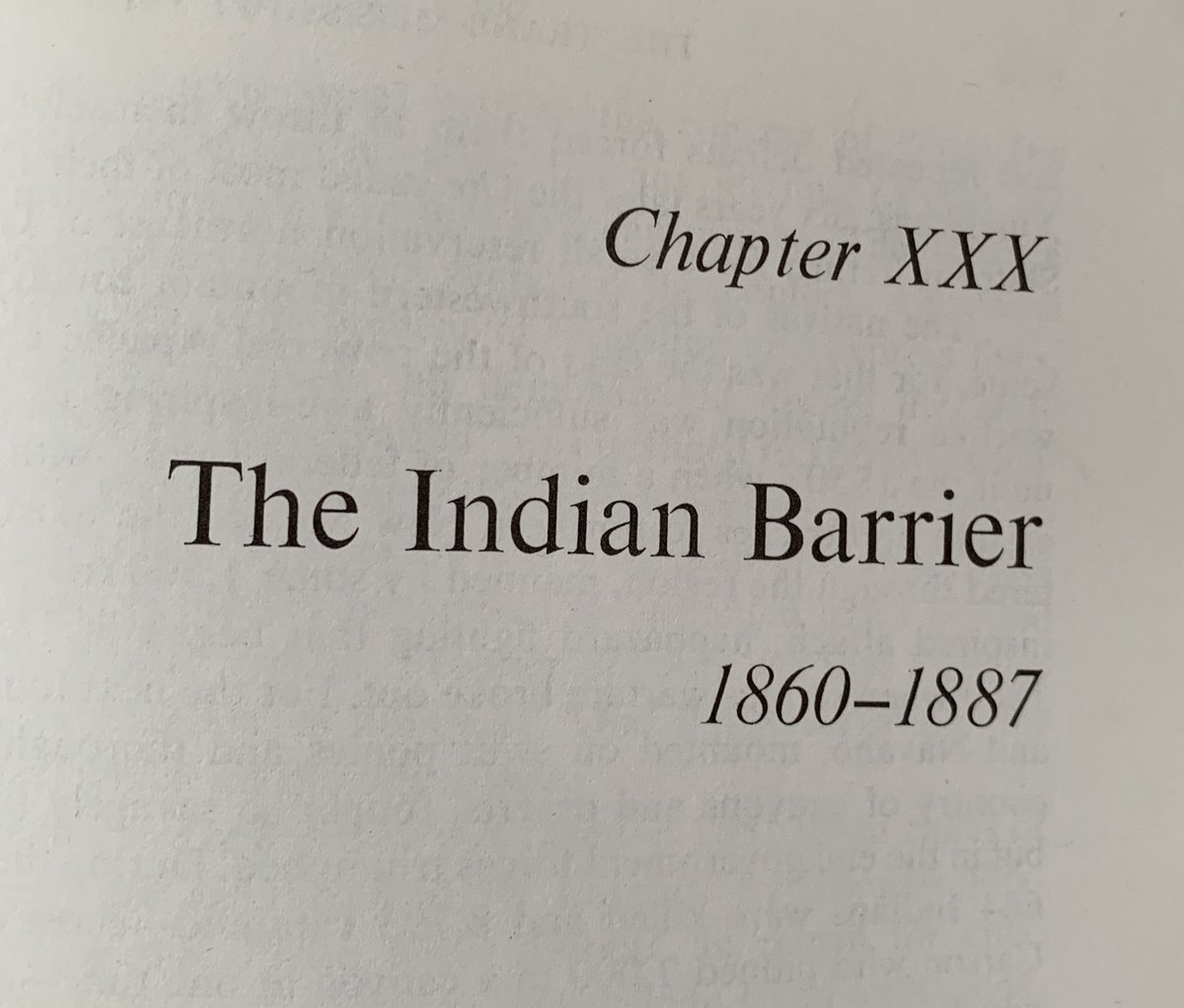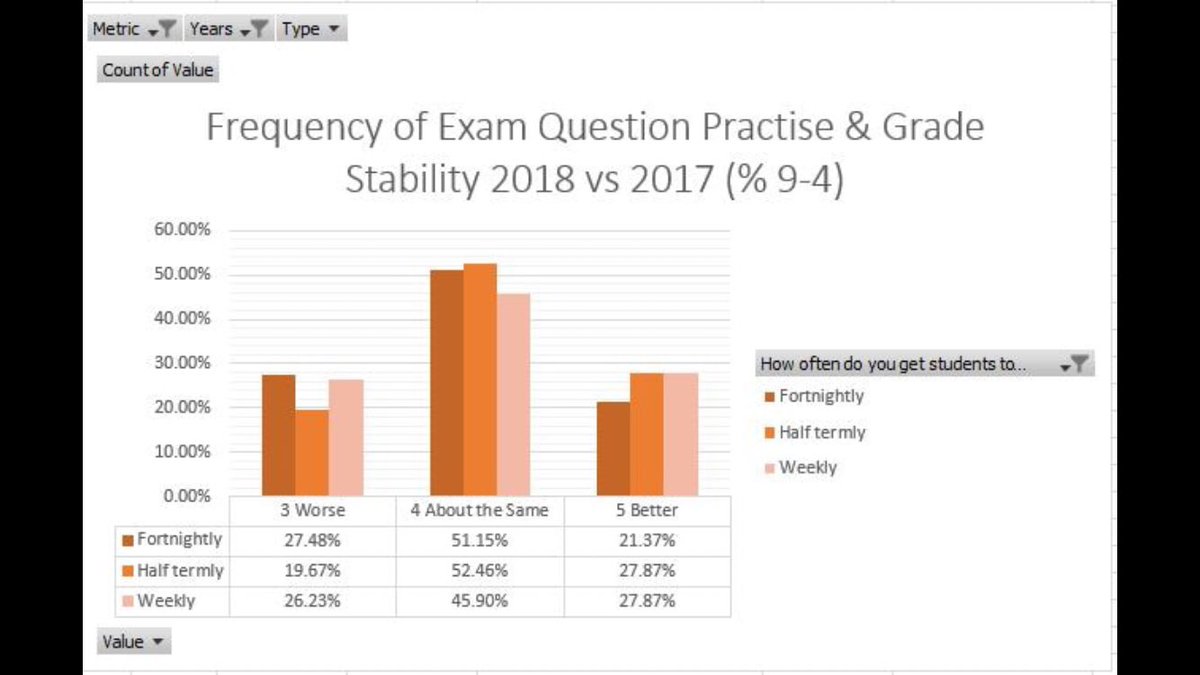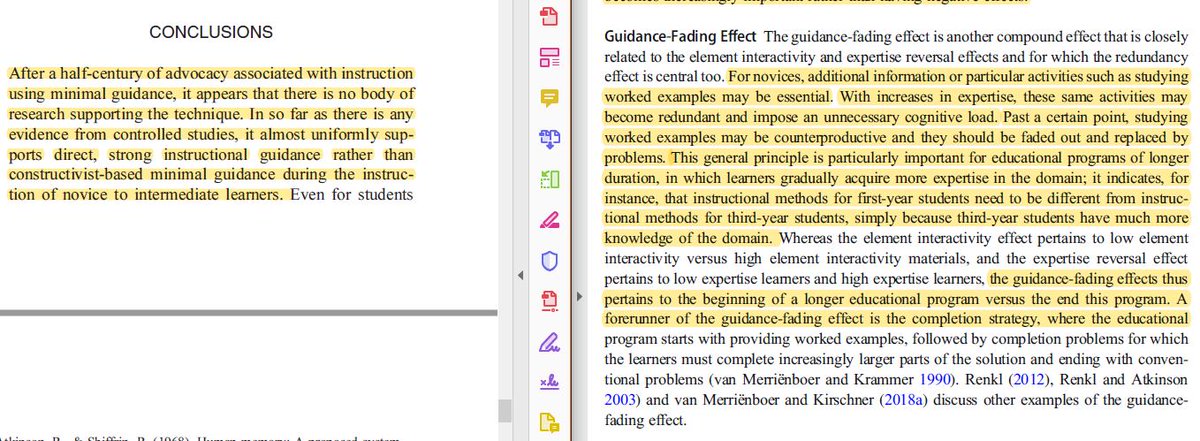
A thread on why we can’t just rely on ‘the historical method’ as a guarantor of the pursuit of historical truth. We must engage with the underlying purposes and ethics of history creation. Even more vital when it comes to creating history curricula for schools. #historyteacher 

At the heart of history is a deep conservatism. Marc Bloch referred to the discipline as ‘the guild’ because of it. Although historical interps can be challenged, in reality this process is often glacial and usually needs a shove to get going. Let me illustrate 

Ray Allen Billington’s ‘Westward Expansion’ was first published in 1949 when, according to its 6th Ed blurb (2001), it “set a new standard for scholarship in western American history”. It went on to become the core narrative of US expansion for millions of students. 

But Billington’s 1949 narrative is deeply problematic. It expressly set out to provide the research to support FJ Turner’s 1893 ‘frontier thesis’ of American history - that US history was a story of a frontier of civilisation overcoming a savage wilderness. 

Turner made a case for US exceptionalism: a unique American culture shaped by the advancement of the frontier of settlement (ironically also an argument that US expansion was colonialism). He argued the European ‘germ’ evolved. Notably Indigenous people are not seen as ‘men’ 



When Billington wrote in 1949, he emphasised this notion of westward expansion and white (usually male) ‘evolution’ by focusing extensively on the written diaries and memoirs of the colonists (as well as Govt docs). In this rendering ‘Indians’ were another barrier to be overcome. 



When viewed as a barrier, Native Americans end up being framed as tragic victims of the superiority of the ‘European germ’. Billington notes the tragedy, but still frames it as necessary and inevitable. An action enacted poorly by government, but a necessary step in expansion. 

Lest you think this is an interpretation similar to recent claims of client American colonialism, it is worth noting that Billington gives a ‘clash of cultures’ framing. E.g. ‘Indian resistance ’ not white aggression apparently led to deaths. 

Because of his Turnerian framing, for Billington, the Native American place in the Western story is to be overcome, or assimilated, or even accommodated into a white, Euro-American “empire of liberty” (as Jefferson tried to frame it). 

In each subsequent edition (1960, 1967, 1974) , Billington took pains to revise his narrative based on new works of western history. The 1974 edition marks a significant milestone. Billington notes that he has been forced to respond to calls for more inclusive history. 



Yet, Billington very much adopts the tone: “I’ve already been doing”, or “You have misread my point about” in his response to the challenge of the new historians of the 1960s and 1970s. This is not too dissimilar to responses we have heard from historians to BLM in recent years
So what changes in the representation of Native Americans in 1974? The answer: little. Billington tacks in a chapter on ‘woodland Indians’ but the core of his earlier work on ‘The Indian Barrier’ remains unchanged. The challenges are made to fit with B’s Turnerian purpose. 



B does add a gloss on the poor treatment of NAs by the Govt. However he is keen to separate this from the actions of heroic pioneers who ‘might’ have accommodated Natives in their new America. For B, the white acquisition of US lands was inevitable, he criticises only the methods 

Surely the interpretations were altered by the time the 6th edition (edited by Ridge) was released in 2001? Not really! Changes were made to language but the messages about inevitable extinction of Native ppl remained, now inc a comment on NA involvement in supporting the US 



In fact the 2001 edition contains a revised final section directly distancing US expansion from the claims of genocide that had been gathering pace since the 1970s and were finding significant voice in the 1990s. A backtracking even on Billington’s earlier views 

Why does this matter? Two reasons: 1) Changes to historical methods are often not brought about from within but by forces which disrupt from outside. I hear people complain that history should not bend to present day ethics. But why should we stay wedded to past ones? 

The discipline of Western history certainly changed its approaches when challenged by the new historians of the 1960s and 70s. Yet these movements were as much inspired by wider political and ethical questions about the purposes of history. 



These challenges in turn influenced the slow broadening of disciplinary methods and truth processes, so that the West could be viewed through feminist, or Marxist, or Indigenous perspective; new forms of evidence could be explored; and silences challenged. 

2) Despite challenges, orthodox interpretations of the past seldom change, even when challenged, if they never address their core purposes. Billington could never fully revise his view of Native Americans because he was too wedded to Turner. 

Without rejecting the concept of a white European germ, the core of Billington’s portrayal of Native Americans as a people doomed to disappear before white expansion could not be expunged. History cannot correct itself through its methods alone. We must question our ethics too.
This matters all the more when we select historians who influence what children are taught. Children have limited ability to challenge the methods of historians. What looks like a defensible method will be received in most cases with faith.
Billington’s work was defensible in the orthodox methods of history of the 1940s-1970s as plenty of contemporary reviews attest. Basing a curriculum on his narrative, as many did, was extremely damaging, as Ojibwe historian, David Treuer attests here. 

And there are plenty of narratives based on problematic purposes today too!
This is why asking questions about the purposes of historians, as well as their methods, is so vital when we build our history curricula. Not to do so is to risk perpetuating great injustices.



This is why asking questions about the purposes of historians, as well as their methods, is so vital when we build our history curricula. Not to do so is to risk perpetuating great injustices.




• • •
Missing some Tweet in this thread? You can try to
force a refresh











